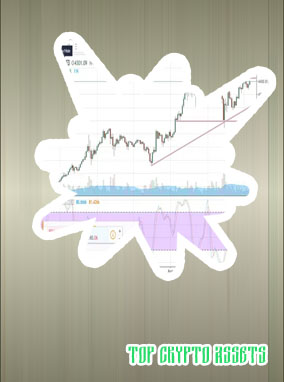Trading hours for cryptocurrency

Bitcoin, Ethereum and XRP Forecast Video for 05.09.23 by Tim Smith
The exchange software segment dominated the market in 2022 and accounted for more than 32.0% of the global revenue. The use of exchange software is essential for completing cryptocurrency transactions since it facilitates the conversion of cryptocurrency coins to fiat currencies and vice versa. The growing development of crypto exchange software to provide seamless trading of cryptocurrency is anticipated to aid the segment growth. What time does the crypto market open Since cryptocurrencies trade 24/7/365 and do not take a break like stock, options, and futures, we (tastytrade) have set up a time to settle crypto trades. Settlement times (T+#) listed below are calendar days rather than trading days because of the 24-hour market. When closing a crypto position on a bank holiday, you must add +1 calendar day for settlement after closing a crypto trade. Times and days listed below are based on Central Time (Chicago Time).
Crypto hours
Here's a closer look at the crypto market trading hours. Cryptocurrency vs Stock Market Trading Hours Specifically, the first thing I wanted to put my hands on were the exchange rates between various crypto and Fiat currencies. I found that the website CryptoCompare.com offers a nice API, free for small numbers of calls, that allows programmatic access to data from its base. I also found online various pieces of JavaScript code that I put together into two very simple web apps: one to get updates of BTC-USD exchange rates every 10 seconds; and another to retrieve historical BTC-USD exchange rates every minute, hour, or day throughout the whole history of Bitcoin. Feel free to copy the code I present and to adapt it to your own goals.High-Frequency Trading (HFT)
Trade CFDs on popular cryptocurrencies including Bitcoin, Ethereum, Ripple and Litecoin against the world’s dominant currencies and build your crypto portfolio today without the need for a digital wallet! India The COVID-19 pandemic halted global economic activity, although it is projected to positively affect the cryptocurrency market. The impact of the COVID-19 outbreak on the world economy has heightened uncertainty, which has drawn more attention to cryptocurrencies such as Ethereum, Bitcoin, and others. The banks started creating digital currencies backed by blockchain to enable Business-to-Business (B2B) crypto payments. In October 2020, the first Central Bank Digital Currency (CBDC) was launched by the Central Bank of Bahamas, named Sand Dollar. This launch of CBDC aimed to improve financial inclusion and strengthen security.

